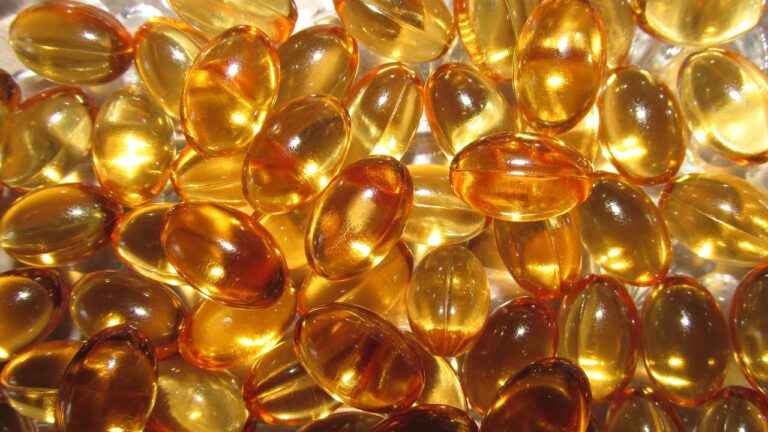Vitamin E oil can be used as a lubricant, provided you don’t have any allergies or sensitivities. However, like other oils, it can degrade the material of latex and jelly rubber condoms.
It’s also hard to clean off of sex toys, so it may not be the best choice for masturbation. Additionally, it can cause yeast infections or bacterial vaginosis in some people.
1. It’s a supplement
Vitamin E oil is used as a supplement for skin care, as it contains antioxidants that help neutralize free radicals that can cause skin damage. It also helps to moisturize the skin and promotes circulation. It can also be applied to scars to make them look less noticeable. It is often added to other cosmetic products and can be purchased over-the-counter.
When applying vitamin E oil on the face, it is best to start with a clean face. It is a thick oil and can clog pores if left on for too long. To prevent this, it is recommended to mix the oil with another carrier oil like coconut or jojoba. This will help the oil evaporate and avoid clogging pores. The oil can be left on for up to 15 minutes, but it is not recommended to leave it on for longer than this.
You can purchase vitamin E oil from most health stores and pharmacies. It is also available in capsule form, which can be opened and the oil can be squeezed out for use. It is important to note that many over-the-counter vitamin E products contain additional ingredients that may not be suitable for some people. It is also important to do a patch test before using any vitamin E product on the skin, as it may cause an allergic reaction. A patch test can be done by applying a small amount of the oil behind the ear or on the inside of the knee and waiting 48 hours to see if there is any reaction.
2. It’s a natural lubricant
People use lubricants for many reasons, including vaginal dryness or to enhance orgasms. However, it’s important to use a quality product to prevent an infection, says Dr. Pari Ghodsi, an obstetrician and gynecologist. And while some people may want to try homemade lubricants such as vitamin E oil, there are safer and better options available.
Because vitamin E oil is a supplement, the FDA doesn’t regulate it, and its purity can vary. Some may contain additives or other oils that can be harmful to the genital area. The best way to ensure a safe lubricant is to choose a product labeled as pure 100% natural with no additional ingredients. If you’re unsure, you can always do a patch test by applying a small dab of the oil to the inner elbow and waiting 24-48 hours for any signs of irritation.
Another natural option is kiwifruit vine extract, which is a pH balanced water-based personal lubricant. It’s a natural byproduct of the New Zealand kiwifruit harvest and is found in many vegan lubricant products. It provides a thick coating of moisture to protect against irritation, and it’s also safe to use with condoms. It’s also an excellent choice for women with vaginal atrophy, as it increases oestrogen production.
3. It’s a moisturizer
Vitamin E oil is often used as a moisturizer because it has hydrating properties. This makes it a popular choice to use on dry skin, including the vaginal area. However, it is important to note that there is a risk for allergic contact dermatitis in some people when using this product around the genitals. Because of this, it is essential to do a patch test of the product elsewhere on your body before applying it to your genitals.
There are several safe ways to use vitamin e oil as a moisturizer, including massaging it into the skin and inserting it into the vagina. The oil can also be added to a hot bath for relaxation. It is essential to note that some products marketed as vitamin e oils contain ingredients that can be irritants, so be sure to read the label before purchasing a product.
In addition to the risks of allergic reactions, vitamin E oil can also be irritating for those who are prone to yeast infections or bacterial vaginosis. It is also not recommended to use the product with silicone toys, as it can cause abrasions or lubricant buildup. Lastly, the oil can degrade latex and polyisoprene condoms, which could lead to an unwanted pregnancy or an STI.
Dweck recommends using a natural lubricant, such as coconut oil or extra virgin olive oil, for intimate use. She adds that butter should not be used as a lubricant, since it is made from animal fats and has a high pH level, which can alter the vaginal balance and increase infection risk.
4. It’s a natural fragrance
Vitamin E oil is an excellent choice for adding a natural scent to lubricant blends. It’s also a safe substitute for some essential oils that can be irritants when used on their own. It also mixes well with a variety of other ingredients that you can add to your homemade lubricant.
There are many safe lube options, including aloe vera gel, extra virgin olive oil, shea butter and more. Just make sure to choose a brand that doesn’t contain latex, which is a common allergen in personal care products and can lead to a life-threatening allergic reaction.
As a rule, oil-based lubes are best avoided if you’re prone to yeast infections or bacterial vaginosis. It’s also not recommended for use with rubber toys, as it can degrade the material over time.
Avoid petroleum-based lubricants as well, like baby oil and Vaseline. They’re greasy, hard to wash off and create an ideal environment for bacteria to grow. Instead, you can try using a silicone-based lube. It’s thicker, doesn’t absorb into the skin and lasts longer than other types of lube. It’s more difficult to find and more expensive, but it’s safer for your vulva. It can also cause your sex to feel less exciting, so it’s best reserved for people who can’t find a better alternative.
See Also:



